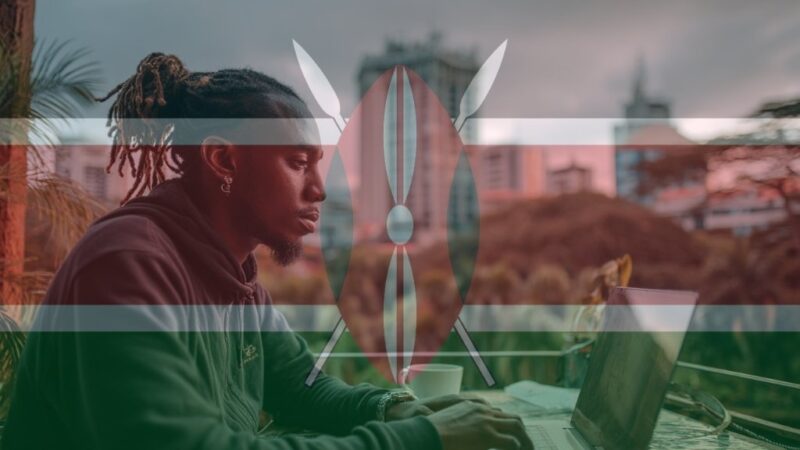Freelancing in Africa is gaining serious traction in 2025 as more professionals ditch traditional offices for digital opportunities.
A projected $180 billion freelance economy by 2030, as projected, highlights the scale of growth waiting to unfold.
Affordable living costs, rapidly improving digital infrastructure, nomad-friendly visa policies, and progressive remote work regulations are reshaping Africa’s professional map.
For freelancers aiming to balance work with lifestyle, the continent is now a magnet.
Highlighting the ten most popular destinations in Africa reveals where independent professionals are setting up base in 2025.
10. Tanzania

Tanzania is steadily growing into a hotspot for freelancers searching for a balance between productivity and adventure.
Dar es Salaam and Zanzibar are now at the center of coworking expansion, with affordable hubs springing up in key areas.
A safari combined with workation possibilities makes it especially attractive for digital nomads who want to alternate Zoom calls with encounters in Serengeti or beach sunsets.
Local hospitality blends with an affordable cost of living, providing freelancers the chance to stretch their income while enjoying a laid-back lifestyle.
Government initiatives in connectivity also continue to make major cities reliable for remote work.
- Dar es Salaam and Zanzibar coworking spaces
- Affordable living
- Safari-meets-work culture
9. Mauritius

Mauritius attracts freelancers with its progressive digital governance and tax advantages.
Digital professionals benefit from no taxation on income earned while living as nomads, which is a huge incentive compared to global standards.
Over 50,000 digital professionals are already based here, strengthening its profile as a technology hub.
Reliable telecom services and a booming BPO sector further make Mauritius one of the most freelancer-friendly countries in Africa.
Add to this a safe environment and access to citizenship by investment programs, and Mauritius rises as a preferred long-term base.
- No tax on digital nomads
- Strong e-gov ranking
- 50,000+ digital professionals
8. Rwanda

Rwanda is pushing forward with digital transformation through its Smart Rwanda Master Plan.
Since 2020, the country has climbed twelve spots in the UN e-government index, signaling strong governance and digitization progress.
Kigali is quickly becoming a startup and freelancing hub with paperless administrative systems that cut unnecessary bureaucracy.
A safe and orderly environment complements this growth, allowing freelancers to focus on building their careers without stress.
Internet coverage is consistently expanding, giving remote workers confidence in stability.
With such foundations, Rwanda is cementing its place as a tech-driven African hub for professionals worldwide.
- Kigali’s startup growth
- paperless systems
- Smart Rwanda Master Plan.
7. Seychelles

Seychelles has embraced the freelancing wave by launching its “Workation Retreat Program.”
The process for freelancers is remarkably simple: proof of employment and a €45 fee unlocks access.
This initiative combines a scenic island lifestyle with the right digital support structure, making it ideal for professionals looking for productivity in paradise.
Reliable connectivity and coworking spots are increasingly available in main islands, while the serene environment reduces stress.
Expat interest is climbing as Seychelles positions itself as both a vacation spot and a reliable work hub.
- Workation Retreat Program
- Simple visa process
- Scenic yet digitally capable environment
6. Tunisia

Tunisia is investing heavily in digital infrastructure, particularly in education and identity systems.
Programs are rolling out to ensure school connectivity and nationwide student access, building a foundation of future tech-savvy professionals.
Such focus on connectivity also benefits freelancers already in the market, as stable internet and government digital reforms make remote work smoother.
Tunisia is especially attractive to those working within Francophone markets, offering both language advantages and access to regional opportunities.
As the country continues its reforms, it becomes an attractive base for freelancers who value innovation and long-term growth potential.
- Digital ID programs
- School connectivity
- Francophone freelance opportunities.
5. Morocco

Morocco has secured a strong place in the digital economy, ranking fourth in Africa on the 2024 EGDI.
Stable internet infrastructure combined with active governance reforms have created a fertile ground for freelancers.
Casablanca and Marrakech are hosting coworking hubs that connect international clients with local talent.
Freelancers who work in French and Arabic markets find Morocco particularly rewarding, with a steady flow of projects across multiple sectors.
Reliable transportation, cultural energy, and affordable living costs add to its appeal as one of the top freelancing nations on the continent.
- EGDI rank
- Smart governance
- Thriving French and Arabic freelance markets
4. Egypt

Egypt is carving out a reputation as a tech-driven freelancing hub through ambitious programs like the Digital Egypt Builders Initiative (DEBI).
This initiative invests in developing advanced talent in AI, cybersecurity, and design, which are rapidly growing industries globally.
Ranking high on the UN e-government index also reflects Egypt’s strong focus on digitization.
Cairo and Alexandria serve as tech hotspots, where freelancers tap into large markets and international clients.
Affordable housing and good connectivity create additional incentives for freelancers looking for long-term professional opportunities.
- DEBI program
- High UN e-gov ranking
- Growth in AI and cybersecurity
3. Nigeria

Nigeria continues to dominate the freelance scene in Africa with one of the largest digital communities worldwide.
Over 98.8 million broadband subscribers reflect the sheer scale of connectivity.
Lagos, Abuja, and Port Harcourt have thriving ecosystems where freelancers flourish in content creation, AI, and digital services.
International hiring platforms consistently rank Nigeria as a top source of freelance talent, driven by language advantage and competitive rates.
A vibrant youth population and expanding digital literacy only add fuel to this growth, making Nigeria impossible to overlook for freelancers in 2025.
- 98.8M broadband users
- Leading international freelance market
- Booming creative and AI sectors
2. Kenya

Kenya officially launched a Digital Nomad Visa in 2024, a move that instantly positioned the country as one of Africa’s premier freelance destinations.
Nairobi offers a thriving startup scene, blending innovation with opportunities for independent professionals.
Over 8,900 km of fiber has been laid through the NOFBI project, ensuring reliable internet even outside capital hubs.
Affordable coworking spaces, combined with a favorable climate and entrepreneurial spirit, make Kenya highly attractive for freelancers seeking balance between work and lifestyle.
Mombasa adds coastal options for those seeking a slower pace while remaining connected.
- Digital Nomad Visa
- Nairobi’s startup ecosystem
- NOFBI fiber network
1. South Africa

South Africa tops the freelancing destinations list for 2025 with unmatched infrastructure and vibrant tech communities.
Leading the continent in 5G deployment and fiber penetration, South Africa offers world-class connectivity.
Johannesburg and Cape Town are buzzing with freelance professionals, coworking hubs, and international networking opportunities.
High ranking in the UN e-government index reflects strong digital policy implementation, making administration smoother for freelancers.
A large local workforce combines with international clients, ensuring freelancers have access to projects across industries.
Competitive living costs compared to Europe or North America also enhance its attractiveness.
- 5G and fiber leadership
- Thriving freelance hubs in Johannesburg and Cape Town
- High UN e-gov performance
The Bottom Line
Africa is no longer an afterthought in the global freelance economy.
With digital infrastructure investments, innovative policy shifts, and nomad-friendly programs, the continent is shaping up as a remote work powerhouse.
Freelancers who carefully choose their base can unlock advantages in income, lifestyle, and career growth.
Tanzania offers adventure with affordability, Rwanda pushes digital-first governance, Seychelles sells paradise productivity, and South Africa combines world-class tech with a massive talent pool.











